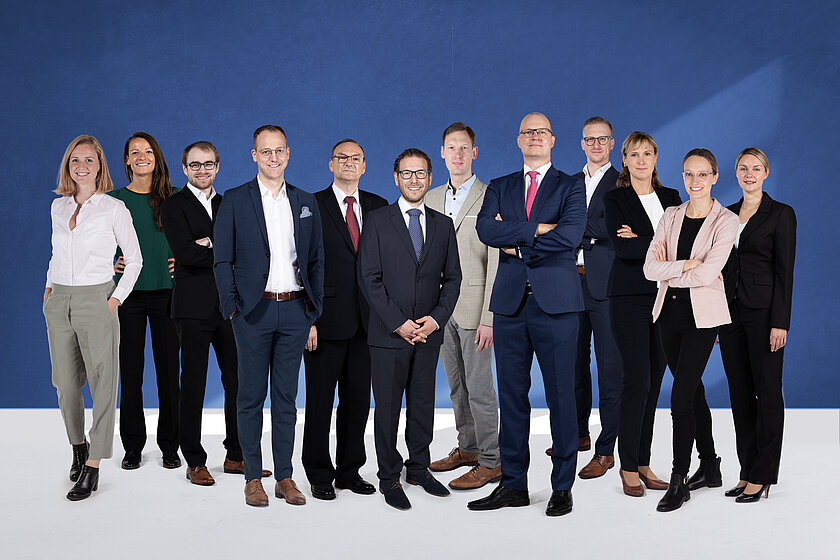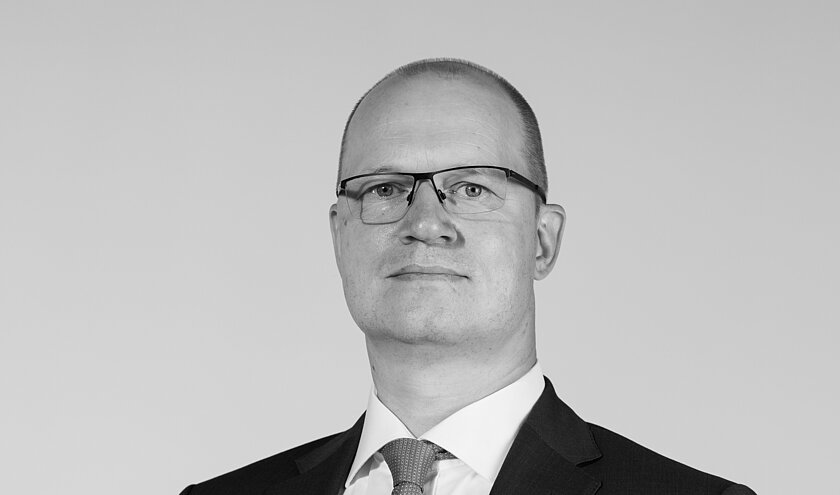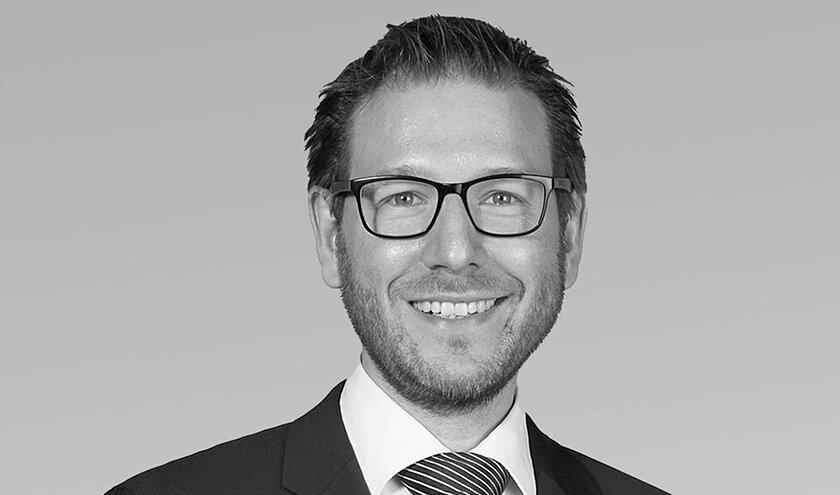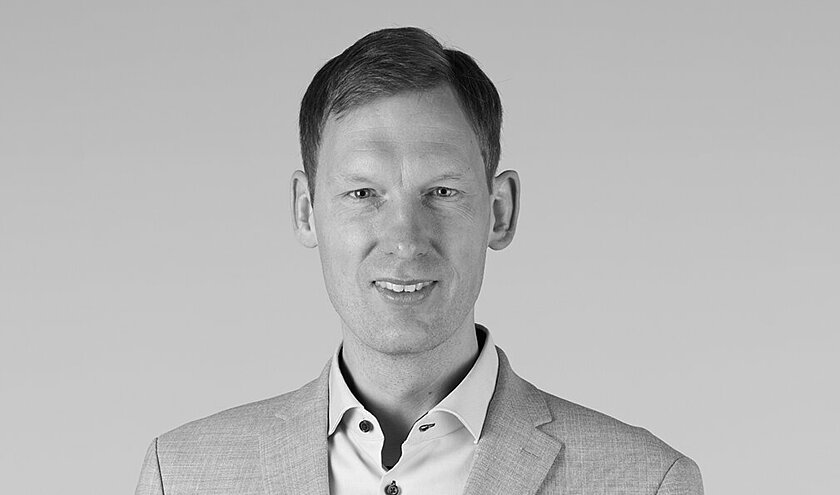What impact do digital innovations have on modern societies and organisations? How do they need to be designed to benefit society? And how can digital innovations help to bridge the digital divide and promote social inclusion? Five professors and eight research assistants are currently working on these overarching research questions at the Institute for Digital Innovation.
The IDI in three key words? Research-oriented, innovative, practical
The Institute
From the beginnings ...
How can the management of service companies be further developed so that they can survive successfully on the market in the long term? This question marks the birth of today's Institute for Digital Innovation, or IDI for short: after the idea had taken shape as part of the HNU Future Workshop in 2012, Prof. Dr. Thomas Bayer and Prof. Dr. Heiko Gewald decided to provide an interdisciplinary platform for joint work in this area. Together with Prof. Dr. Andy Weeger - then still a research assistant at HNU - they founded the Center for Research on Service Sciences (CROSS) in 2013, which was the first cross-faculty research institute at HNU to combine business management skills and information management expertise. In the years that followed, the institute advanced its work in a number of areas: in addition to various research and teaching projects, the scientists involved launched the IT Executive Circle (ITEC) in 2014, which still serves as a think tank and innovation incubator for companies from the region today.
We founded our institute at a time when the service sector was booming. This brought with it a whole host of challenges for management - from increasingly saturated markets to greater competitive pressure - which we tackled together, taking into account several specialist perspectives.
... to today
The close interlinking of research (generating knowledge), application (using knowledge) and teaching (imparting knowledge) is still part of the institute's basic philosophy today and has been further developed accordingly. A lot has also happened in terms of personnel in recent years: the founding team has been joined by a number of other professors, academic staff and associated researchers. This diversity is also one of the strengths of the institute: The combination of a wide range of specialist disciplines and the international focus make it possible to look at challenges in practice and science from different perspectives and to develop new, sustainable solutions. As of this year, this innovative strength is also directly reflected in the name of the institute: the Institute for Service Management has become the Institute for Digital Innovation (IDI).

The institute directors
Senior Research Fellows
The research topics
In the service sector in particular, advancing digitalization has brought about huge upheavals and presented companies with immense challenges. "Every transformation is based on innovation," says former research professor Prof. Dr. Heinz-Theo Wagner, who has been a Senior Research Fellow at the IDI since his retirement in 2023. "Transformation is not possible without digital innovation." But how can these digital innovations be generated without becoming a flash in the pan? How can an organization or a business model, how can processes be continuously changed through digital innovations? These and similar questions drive the scientists at the IDI in their daily work.
With our research, we aim to gain knowledge, especially for the international scientific community. The focus is on the development and evaluation of theory- and evidence-based solutions with sustainable added value.
In addition to value creation, translation is an important keyword at IDI: we provide theoretically sound answers to "Why?" questions and clarify the "How?" question in an application-oriented manner.
The range of specific research topics is broad: the institute is currently working on the obstacles, needs and requirements of older people in the digitalization of the healthcare system (technology behaviour research: mHealth for senior citizens), the analysis of spoken language in marketing (VACE - emotions in language) or the use of digital technologies to guarantee basic food supplies (INFINITY - food security in emerging countries).
The IDI in facts and figures
250
peer-reviewed publications have been published by the IDI since its beginnings. Among the most recent publications: The paper "What makes a firm innovative? An inter-organizational social capital perspective on external partners’ influence on a firm’s intellectual capital" (opens in a new window) by Prof. Dr. Heinz-Theo Wagner and the article"A perfect match or an arranged marriage? How chief digital officers and chief information officers perceive their relationship: a dyadic research design" (opens in a new window) by Prof. Dr. Arne Buchwald.
8
doctoral students are currently working on their dissertation projects at the IDI. One of them is Maximilian Haug, who recently received an Outstanding Reviewer Award as part of the Emerald Literati Awards for Excellence 2023.
5
cooperative doctorates have been completed at the IDI to date - two of the former doctoral candidates now hold a professorship at a university of applied sciences.
Good doctoral supervision is not only at the heart of academic excellence, but also the basis for the development of the IDI over the years. This paves the way for theoretically sound research that also has a measurable impact in practice.
Curious?
Further interesting information on current research projects, publications and transfer activities can be found in the IDI's current annual report.
Project insight "Living City": Setting impulses for a healthier city
One particular research project that has been carried out at the IDI in recent years is the Living City project. Together with Prof. Dr. Heiko Gewald, research assistant Sina Zimmermann has been researching a highly topical issue: how can people in large cities be encouraged to make greater use of environmentally friendly and health-promoting services?
An important keyword in this area is digital nudging. "Nudging means something like 'nudging' and refers to a method of influencing human behavior without changing economic incentives," explains Sina Zimmermann. But this is not about manipulation, she emphasizes. Rather, digital nudging is when, for example, mobility apps highlight climate-friendly route alternatives such as cycle routes in color or encourage the choice of such an alternative with a positive comment.

This method was also used in the Living City project: the researchers developed a corresponding app that provides incentives to use the public transport services in the twin city of Ulm/Neu-Ulm individually. In doing so, they took into account which specific impulses need to be set in order to evoke a certain behavior. The aim of the project was to increase motivation to leave the car at home more often and use public transport or car-sharing services instead, not only to reduce the burden on the environment, but also to improve the physical health of city dwellers. In addition to the individual benefits, successful nudging can also optimize visitor flows in city centres and revitalize the cityscape.
Living City was carried out together with the cities of Neu-Ulm and Ulm, Adesso AG, Missing Link Electronics GmbH, SWU Verkehr GmbH, Mrs. Sporty, Donaubad Ulm/Neu-Ulm GmbH and Glacis Galerie Neu-Ulm. The project was funded by the Bavarian State Ministry of Education and Culture, Science and the Arts from 2018 to 2022 as part of the "Program for the Promotion of Applied Research and Development at Universities of Applied Sciences/Technical Universities" with 630,000 euros. The team will continue to research impulses for a healthier city beyond this funding period.
Contact
Sina Zimmermann
Research Assistant at the Institute for Digital Innovation













